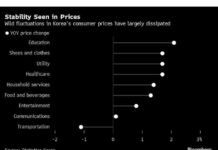As the American Dream fades and the wealth gap widens, Americans are grappling with the role of billionaires in society. The once-revered figures like Bill Gates and Elon Musk are now facing increased scrutiny as many Americans question their impact on inequality and economic disparities.
## The Changing Perception of Billionaires
In a recent survey conducted by the Harris Poll of over 2,100 U.S. adults, it was revealed that a growing number of Americans are no longer enamored with billionaires. The survey found that over half of Americans believe that billionaires are contributing to a more unfair society, with a staggering 71% viewing wealth inequality as a serious national issue.
Libby Rodney, chief strategy officer at The Harris Poll, noted, “These findings reveal a society that admires wealth but also demands greater accountability and equity. It’s a call for a more balanced and fair economy where success benefits everyone, not just a select few.” This sentiment reflects a shifting mindset among Americans who are increasingly questioning the concentration of wealth in the hands of a few.
## The Rise of the Ultra-Wealthy
The Oxfam report, “Inequality Inc.,” sheds light on the exponential growth of wealth among the richest individuals in society. The report highlights how the net worth of the five richest men has skyrocketed by 114% since 2020, while American billionaires have seen a $1.6 trillion increase in wealth since the early days of the pandemic.
Rebecca Riddell, policy lead for economic and racial justice at Oxfam America, emphasized the connection between extreme wealth concentration and persistent poverty, stating, “Runaway wealth concentration at the very top and persistent poverty are two sides of the same coin.” This disparity is becoming increasingly apparent to Americans who are struggling to make ends meet while witnessing the lavish lifestyles of the ultra-wealthy.
## Calls for Accountability and Fairness
The Harris Poll revealed that a majority of Americans blame billionaires for accelerating inflation and view America as a playground for the rich. While there is a reluctance to limit wealth accumulation, there is a growing consensus on the need to tax the wealthy. Younger adults, in particular, are advocating for increased taxation of the rich, with 80% of Gen Zers supporting this measure.
Despite these criticisms, many Americans still hold conflicting views on billionaires. While some believe that billionaires contribute positively to the economy and society, others argue that their accumulation of wealth exacerbates inequality and inflation. This ambivalence underscores the complex relationship that Americans have with the ultra-wealthy.
## The Aspirational Resentment Towards Billionaires
As aspirations of wealth and success persist among Americans, there is a growing expectation for billionaires to give back to society. The Harris Poll found that a majority of Americans believe that the ultra-wealthy are not doing enough with their fortunes to benefit the broader community. Calls for increased philanthropy and social responsibility are gaining traction, as more Americans demand that billionaires allocate their wealth towards programs that address societal needs.
Libby Rodney emphasized the moral imperative for billionaires to support the community that facilitated their success, stating, “This is not merely a financial imperative but a call to foster a more inclusive economy where the success of the few does not eclipse the potential of the many.” This sentiment reflects a shift towards a more equitable distribution of wealth and resources in society.
## Conclusion
As Americans grapple with the implications of extreme wealth inequality and the concentration of riches in the hands of a few, the role of billionaires in society is being reexamined. Calls for accountability, fairness, and social responsibility are gaining momentum as more Americans demand that the ultra-wealthy contribute to the common good. The evolving perceptions of billionaires reflect a broader shift towards a more equitable and inclusive economy that benefits all members of society.






















